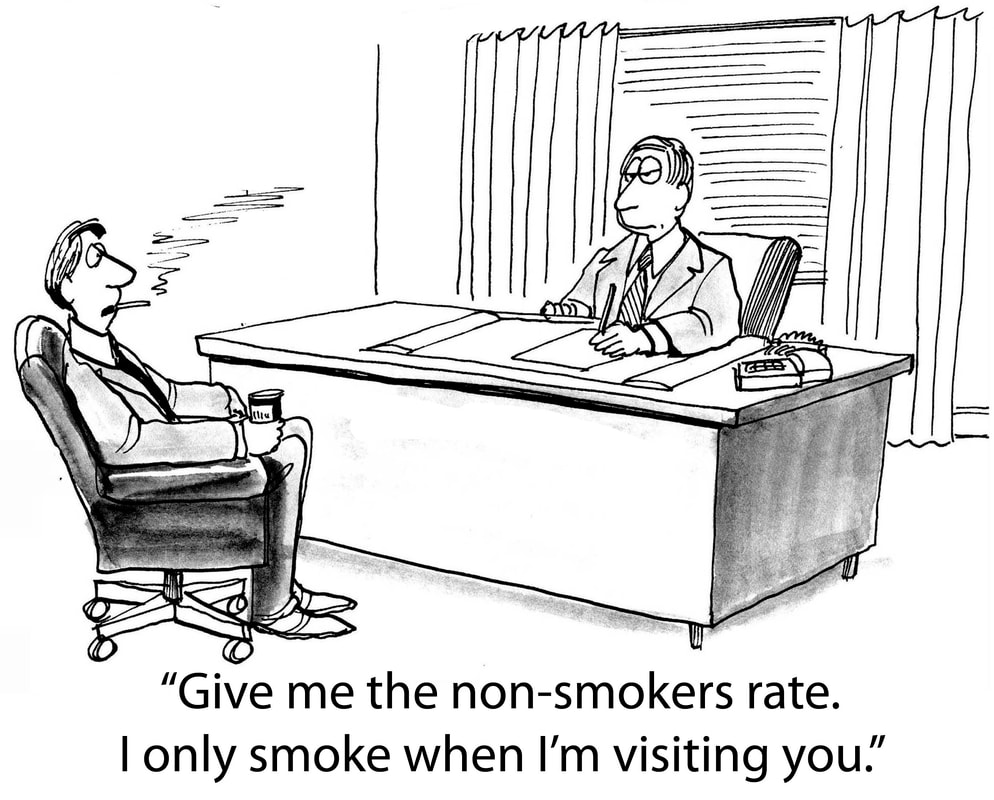Hecht Insurance Advisors, LLC Blog |
New Law Requires COVID-19 Paid Sick Leave, FMLA Benefits
Paid sick leave
Employees are entitled to two weeks (80 hours) of paid sick time for coronavirus-related issues. Eligible workers will receive their regular pay, up to $511 per day and $5,110 total. Those caring for someone subject to quarantine due to COVID-19, and parents of kids who can't go to school or daycare, will receive two-thirds of their regular pay, up to $200 daily with a $2,000 cap. The emergency sick leave benefit can be used immediately, regardless of how long the worker has been employed with you. It can be used when they cannot work or telecommute for any one of the following reasons:
The law does not require certification of an order by the government or a health care provider. But employers can require reasonable notice procedures, such as not announcing in the middle of a shift that they take COVID-19 sick leave. But they cannot require the employee to find a replacement worker to cover the shifts they will miss. Employers must post the law's requirements "in conspicuous places." Employers are not allowed to discipline a worker who takes this sick or FMLA leave for coronavirus purposes and, if an employer refuses to provide the leave, they can be ordered to pay both back pay and statutory damages that are equal to the back pay the employee is owed. This law provides payroll tax credits to offset all costs of providing these paid leaves. FMLA The FMLA portion of the law provides for 10 additional weeks of FMLA leave, but only for those who must stay at home to care for a child whose school is closed or their childcare provider is unavailable due to COVID-19-related issues. These 10 weeks will be paid at two-thirds the employee's regular rate of pay, up to $200 per day with a cap of $10,000. They will also receive 12 weeks of leave with job protection, though employers of health care or emergency care providers can exclude such employees. The employee would likely use up their two weeks of paid sick leave before applying for FMLA benefits, which unlike traditional FMLA (which is unpaid), are paid leaves after the first 10 days under the new law. Employees who have been working for more than 30 days are eligible, and the employer can require them to provide reasonable notice that they are taking leave. A final word This law only applies to employers with fewer than 500 workers, so it leaves uncovered those people who work for larger companies. Also, employers need to make financial plans, as the credit cannot be claimed until after the employer pays their payroll taxes. A bigger issue is that the law requires that workers be paid the sick leave even if they are not sick, but have been ordered to self-isolate. In states that have ordered workers to self-isolate, such as California, employers could be faced with an avalanche of paid sick leave claims all at once. This law sunsets on Dec. 31, 2020.
0 Comments
Can You Legally Refuse to Hire Nicotine Users?
Already, some hospitals have instituted similar policies, and Alaska Airlines has had a policy of not hiring smokers since 1985. But with U-Haul making the move, other companies, both large and small, are weighing the choice of whether they should implement a similar policy.
Although U-Haul subsidiaries operate in all 50 US states, the policy will be implemented in the 21 states that do not have discrimination protections for smokers on their books. Those states are: Alabama, Alaska, Arizona, Arkansas, Delaware, Florida, Georgia, Hawaii, Idaho, Iowa, Kansas, Maryland, Massachusetts, Michigan, Nebraska, Pennsylvania, Texas, Utah, Vermont, Virginia and Washington. Benefits of a no-nicotine policyA 2013 Ohio State University study that reviewed smoker absenteeism, productivity and health insurance, found that they cost their employers an average of $6,000 more per year than those who have never smoked. Smokers overall are less productive. A 2007 Tobacco Journal study by Petter Lundborg of University of Amsterdam found that smokers took 11 more sick days per year than nonsmokers did - eight days when you factor in variables like a smoker's tendency to take more risks and have poorer health. There also are other indirect effects on productivity, such as an increased rate of early retirement in smokers, the study found. Other studies have found that tobacco users have an increased risk of short-term illness, and a higher risk of developing chronic illness, resulting in even more missed days and significantly higher health care costs. Smokers can also have a negative impact on employee morale, as non-smoking colleagues may perceive that they abuse their breaks and do less work as a result. Tough choice for employers Employers who are considering similar policies need to tread carefully. Twenty-nine states and Washington, D.C. have laws on the books that bar employers from discriminating against an employee's lawful off-duty activities (such as nicotine usage) or prohibit discrimination based on tobacco use. Also, if you have operations in multiple states you would have to roll out different policies in different jurisdictions, which ends up costing your organization more money. On the other hand, there are no federal laws barring action against nicotine users. For example, nicotine addiction is not a disability under the Americans with Disabilities Act. Attempts by government employees to gain protection for their right to use nicotine products have routinely been shot down by courts. Given the state-specific nuances associated with this issue, you should consult an attorney if you are thinking about implementing a nicotine-free hiring policy, to make sure you can do so under the law. Additionally, employers who have tough rules on nicotine use may have a harder time attracting talent, potentially causing them to miss out on strong candidates who use nicotine products. All this said, employers can still regulate and limit an employee's on-site nicotine use in the workplace. It's wise to have policies in place that bar smoking and vaping on the premises to protect customers, the general public and your non-smoking employees from second-hand smoke and vape. Studies have shown that the best way to get someone to quit smoking is not through punitive measures, but through incentives. Many wellness plans include smoker cessation programs that provide incentives to employees who quit smoking. Some of these programs impose surcharges on nicotine users that are then used to cover claims and pay for administrative expenses under the employer's group health plan. The 5 Most Dangerous Workers' Comp Classes We Write
What are THE 5 MOST DANGEROUS WC CLASSES WE WRITE? Electricians: NCCI 5190 Most people would think an electrician's fatal injuries would come from electric shocks or burns related to the constant hazard of working directly with power sources. Instead, most fatal injuries to electricians generally stem from slips, trips and falls. Construction Laborers: NCCI 5403, 5645 Construction Laborers spend a lot of time on scaffolding at precarious heights. About one-third of these fatal injuries derive from slips, trips and falls. Many of these workers also operate power tools and heavy equipment and about one in five fatalities in this industry involved contact with this equipment on the job. Lawn Services: NCCI 0042, 0106, 9102 Landscaping is an industry that requires the regular use of complex power machinery including chainsaws, tractors and lawnmowers. Contact with heavy equipment is the most common fatal injury, with falls from tree-trimming, pruning and similar tasks coming in second. Waste Haulers/ Refuse and Recycling Collectors: NCCI 9403 Most waste and recyclable material collectors perform their jobs in some type of vehicle. It makes sense that the majority of fatal injuries within this industry are transportation related. Waste management employees are also at risk for illnesses due to their regular exposure to pollutants and contaminants on the job. Agricultural Worker: NCCI 0005, 0016, 0035, 0037 Agricultural workers perform the majority of their responsibilities while operating tractors and other off-road motorized vehicles. It's no surprise that transportation incidents account for about half of the fatal injuries involving Agricultural laborers. In addition to these five dangerous classes, Hecht Insurance Advisors writes a wide variety of hard-to-place Workers' Compensation risks. Coverage is available with no e-mod maximum. We offer a variety of payment options and new ventures are accepted for many classes. We also have underwriting authority with many of our carriers, which allows for a very quick turnaround. Contact us today for access to our exclusive programs and numerous WC carrier relationships, rated A.M. Best "A-" or better. Let Hecht Insurance Advisors help with your tough-to-place Workers' Comp accounts! Call or email us today for more information. |
Contact Us(540) 712-2199 Archives
May 2023
Categories
All
|



 RSS Feed
RSS Feed